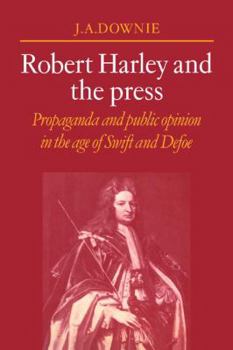Robert Harley and the Press: Propaganda and Public Opinion in the Age of Swift and Defoe
Select Format
Select Condition 
Book Overview
In 1695, with the expiry of the licensing act, state censorship of the press ceased. The end of the licensing system coincided almost exactly with the passing of the triennial act, and from the outset there was a discernable connection between electoral activity and the rise of a virulent political press. This study seeks to explain why press regulations were not reimposed to curb the invective of the party writers; and concludes that the principal reason was the development of government propaganda and counter-propaganda agencies under the direction of Robert Harley. Contemporaries were bewildered by the development of a 'fourth estate'; and successive administrations, brought in through ten general elections between 1695 and 1715, were at a loss when it came to dealing with the problems raised by a free press. But during the course of Queen Anne's reign a government policy gradually emerged, and arrangements were made for the publication and dissemination of 'official' propaganda.
Format:Paperback
Language:English
ISBN:0521070740
ISBN13:9780521070744
Release Date:August 2008
Publisher:Cambridge University Press
Length:248 Pages
Weight:0.81 lbs.
Dimensions:0.6" x 6.0" x 9.0"
Customer Reviews
0 rating





